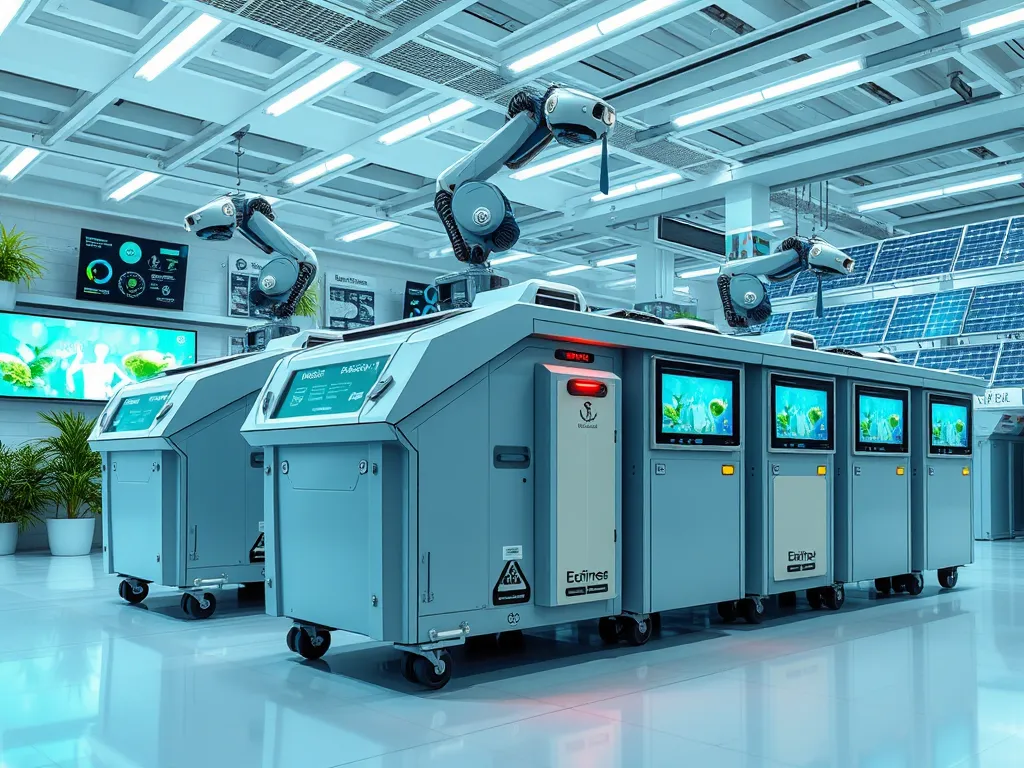Exploring Innovations in Dumpster Rental and Waste Removal Technology

Innovations in Dumpster Rental and Waste Removal Technology
Innovations in dumpster rental and waste removal technology have significantly transformed how we manage waste in urban environments. Gone are the days of inefficient processes and outdated methods. Today, advanced technologies are streamlining waste management through improved efficiency, enhanced customer service, and a significant focus on sustainability.
The rise of smart dumpster solutions has been a game-changer in the industry, employing Internet of Things (IoT) technology to monitor waste levels, ensuring timely pickups and reducing operational costs. This shift not only optimizes routes for waste collection but also plays a crucial role in reducing the environmental footprint of waste management practices.
Another significant trend is the implementation of eco-friendly waste removal technologies. Innovations such as biodegradable containers, electric and hybrid trucks, and waste-to-energy solutions are making a tangible impact on how waste is processed and recycled. These technologies are at the forefront of the push towards a more sustainable future while meeting the increasing demands of environmentally-conscious consumers.
Mobile app technology has also revolutionized the dumpster rental process, offering users seamless interfaces for reserving dumpsters, tracking their locations in real-time, and facilitating payments. These user-friendly applications enhance customer experience, making waste management accessible and straightforward for everyone.
Alongside these advancements, data analytics and compliance technologies are being employed to provide waste management companies with greater insights into operations. Analyzing waste generation patterns and optimizing collection routes can lead to cost reductions and improved service. As regulations surrounding waste disposal become more stringent, emerging compliance technologies such as digital reporting tools and blockchain are ensuring transparency and accuracy in waste tracking.
Smart Dumpster Solutions
The use of IoT in dumpster monitoring allows waste management companies to track the fill levels of dumpsters in real time. This innovation enables proactive scheduling for pickups, minimizing the chances of overflowing containers and reducing unnecessary collection trips.
Remote access and management systems empower operators to control dumpster schedules and maintenance from anywhere. By harnessing cloud technology, these systems ensure that operations run smoothly and efficiently, saving both time and resources.
For an inspiring approach to wellness and community support, visit http://brighterdayservices.org/index-966.html today.
Predictive analytics for waste collection uses historical data to forecast when dumpsters will be full, allowing companies to plan pickups more effectively. This reduces not only operational costs but also carbon emissions from waste collection vehicles by optimizing routes.
Real-time volume tracking of waste helps to provide accurate data for operational improvements. By knowing precisely how much waste is being generated, companies can adjust their services to better meet the demands of their clients while maintaining high levels of service standards.
Customized pickup scheduling for efficiency allows waste management companies to tailor their services to the specific needs of their customers, ensuring that waste is collected promptly without unnecessary interruptions to their schedules.
Eco-Friendly Waste Removal Technologies
Biodegradable containers and liners are becoming increasingly prevalent in the industry, reducing the environmental impact of waste disposal. These innovative products break down naturally, minimizing plastic pollution and landfill waste.
Electric and hybrid trucks for waste transport are leading the charge towards sustainable waste removal practices. By utilizing cleaner technologies, these vehicles reduce greenhouse gas emissions and improve air quality in urban settings.
Waste-to-energy technologies convert waste materials into usable energy, reducing landfill usage and providing an alternative power source. This innovative approach not only helps in waste reduction but also contributes to energy sustainability.
Recycling innovations for waste streams focus on improving the sorting and processing of recyclables. Advanced sorting technologies help to capture more recyclable materials and increase overall recycling rates, further supporting environmental sustainability efforts.
Composting systems for organic waste are gaining traction in both residential and commercial sectors. By transforming food waste and other organic materials into valuable compost, these systems reduce landfill contributions and promote sustainable agriculture.
Mobile Apps for Waste Management
User-friendly interfaces for dumpster rentals make it easy for consumers to reserve dumpsters quickly and efficiently. With just a few taps on a mobile app, users can select the size of the dumpster they need and schedule delivery.
Real-time tracking of dumpster locations provides customers with peace of mind and better control over their waste management needs. This feature allows users to know exactly where their rental is and when it will be picked up.
Payment processing and invoicing features within mobile apps streamline the financial transactions involved in dumpster rental, making it easy for customers to manage costs and access payment history with ease.
Customer support through mobile platforms ensures that users can resolve issues or get answers to their queries quickly. This level of support fosters customer loyalty and enhances satisfaction.
Integration with smart home systems allows users to manage their waste disposal services seamlessly alongside other aspects of daily life, making waste management a more integrated part of smart living.
Data Analytics in Waste Management
Utilizing big data for improved efficiency is a significant trend that aids waste management companies in better understanding their operations. Analyzing large datasets allows for the identification of inefficiencies and the optimization of services.
Analyzing waste generation patterns helps companies anticipate customer needs and adjust services accordingly. This proactive approach enables better resource allocation and enhances overall customer satisfaction.
Optimizing routes for waste collection based on data analytics not only reduces fuel costs but also minimizes emissions, contributing to more environmentally friendly waste management practices.
Cost reduction through data insights enables companies to identify areas for savings and improve their bottom line. Streamlined operations and data-driven decision-making lead to more profitable waste management services.
Environmental impact assessments based on data analytics allow companies to evaluate their operations' sustainability and compliance. This transparency builds trust with consumers and regulators alike, supporting responsible waste management practices.
Emerging Regulations and Compliance Technologies
Digital reporting tools for compliance help waste management companies adhere to local regulations effectively. These tools ensure accurate reporting and help avoid costly penalties associated with non-compliance.
Blockchain for transparent waste tracking enhances the traceability of waste materials throughout the disposal process, ensuring that compliance with regulations is maintained and fostering trust in waste management practices.
AI-driven regulatory monitoring aids companies in staying ahead of emerging regulations by providing real-time insights and alerts on compliance requirements, making it easier to adapt to changing laws.
Automated documentation for waste disposal streamlines the necessary paperwork associated with waste management, saving time and reducing errors. This innovation ensures that all documentation is accurate and readily available for audits.
The impact of regulations on innovation adoption is significant; as lawmakers impose stricter guidelines, the need for innovative technologies becomes pressing. Companies that embrace these changes will not only comply with regulations but also position themselves as industry leaders.
